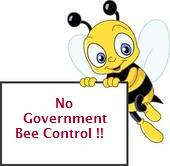Results 141 to 150 of 165
-
02-23-2012, 12:15 AM #141This is not my actual head.



- Join Date
- Nov 2009
- Location
- Middle of nowhere, Minnesota
- Posts
- 4,624
- Blog Entries
- 2
Thanked: 1371
Isn't there a difference between "catering" to a minority with a life threatening condition vs. catering to a minority in a situation with a consequence that doesn't involve death?
For instance - I don't think it's up to the government to ban smoking in places where people gather; I would still expect an asthma clinic to not allow smoking. I would not tell the patients that making them figure out how to deal with the smoke teaches them an important life lesson.
I like Ray's point that it should be up to the local district and not a federal issue.
As to bees - obviously that's a different issue.
I would expect a school to not take a kid with a bee allergy on a class trip to a bee farm.
Strange women lying in ponds distributing swords is no basis for a system of government.
-
02-23-2012, 12:16 AM #142

It's just a cost/benefit analysis on the part of parents, administrators, board members, or whoever. Sure peanuts and peanut oil are in lots of foods, but if you can reduce their prevalence by 97% simply by asking parents not to send their kids to school with PB&J sandwiches, it might make sense to do so. As for the kids not learning to take care of themselves, I can speak from experience and say that those kids face more than ample opportunity: birthday parties, restaurant outings, well-meaning mothers of friends, ... the list goes on.
To restate, it all comes down to somebody deciding that reducing a 1 in 10 chance of something *really* bad happening to 1 in 500 is worth asking the rest of the kids to forego PB&J sandwiches at school. If it's that easy, that's all there is to the decision. It makes good fodder for people to huff about on talk radio, but most of those directly involved probably don't mind it so much.
-
02-23-2012, 12:27 AM #143
-
02-23-2012, 12:45 AM #144

I decided to find out what the incidence of a dangerous reaction is. Other articles state that 1 in 200 children has the allergy, but this article states that only 4 in 100,000 have a severe reaction. The same incidence as getting struck by lightning.
Peanut allergy epidemic may be overstated - The Boston Globe
-
02-23-2012, 12:49 AM #145

I, too, read that same article. But, like bees, you can't really control lightning. If your kid and your family were that 1:25,000, or your kid's friend was, would the stats really matter?
Last edited by jdto; 02-23-2012 at 01:09 AM.
-
02-23-2012, 12:55 AM #146

Last edited by northpaw; 02-23-2012 at 12:57 AM.
-
02-23-2012, 01:08 AM #147

I can agree with that, but I don't think the Feds need to be involved.
If your kid has a peanut allergy it is up to you as a parent to get the severity of the allergy assessed and warn local school officials that he is at risk.
That's the the point where you can start telling other kids not to bring peanuts.
The school nurse can be issued an injector for emergencies. The older kids can carry it around. They should be anyway. Peanuts can be sneaky.
A few allergies on a tiny minority of kids shouldn't impact the whole country.
-
02-23-2012, 01:08 AM #148This is not my actual head.



- Join Date
- Nov 2009
- Location
- Middle of nowhere, Minnesota
- Posts
- 4,624
- Blog Entries
- 2
Thanked: 1371
That article is a bit off:
According to an article published by the CDC, incidence of death from lightning strike in the United States in 1980 through 1995 (most recent I could find with a quick search) was 3 per 10,000,000.
Source:
Lightning-Associated Deaths -- United States, 1980-1995
A pub-med abstract I found shows the rate as 2.3 per 10,000,000 from 1995-2000.
Struck-by-lightning deaths in the United St... [J Environ Health. 2005] - PubMed - NCBI
Strange women lying in ponds distributing swords is no basis for a system of government.
-
02-23-2012, 01:11 AM #149
-
02-23-2012, 01:16 AM #150

Well, it's thought to fall under the Americans with Disabilities Act, which would require those providing a public service to make reasonable efforts towards accommodating someone's disability. Maybe even moreso, since school is something that kids are actually required to attend.
Agreed.


 136Likes
136Likes LinkBack URL
LinkBack URL About LinkBacks
About LinkBacks






 Reply With Quote
Reply With Quote







